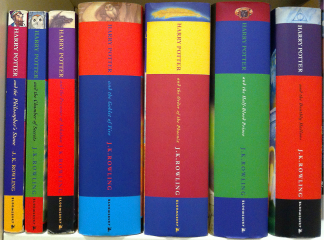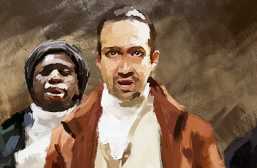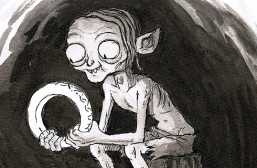Are Creative Writers Taught or Talented?
What makes a good writer? Is it the way they capture moments so vividly, it’s almost as if we’re transported there? Is it the way they use the perfect word to describe an exact sight? Is it the way they come up with topics so enticing, it’s impossible not to read on? These are all traits of effective writers, but how does one attain these skills?
There are two generic explanations for good writers-They have either been taught to write, or they possess a gift afforded to a select few. Within this article, it will be discussed whether one is more plausible than another, and how to embody one’s gift to reach their full potential.

What is Creative Writing?
Creative writing deviates from academic, professional and journalistic writing, due to it’s less strict and formal tone. It uses techniques such as character and plot development, dialogue and themes to construct both personal and commercial works. Creative writing may be seen in advertising, fiction, poetry, songs, films and more, and takes up a variety of different forms.
Although writing is a ‘hard skill’, one that is typically taught though schools or training, creative writing is classified as a ‘soft skill’, due to the creativity involved. Imagination and innovation cannot be taught, therefore such a writing stream depends on the individual thoughts and interpretations of each person.
Why Write Creatively?
For those who enjoy the practice of creative writing, the answer may be obvious. Who wouldn’t love to write? It’s relaxing, rewarding and keeps the mind active. In truth, however, there are a plethora of reasons why one may not enjoy creative writing and these are unique to each person. For instance, a person may not possess a wide range of vocabulary. They may not be well read, and have trouble thinking of the words to describe a setting or character. They may not have the time to write and loathe spending hours staring at a computer when other tasks could be completed.
Creative writers must enjoy writing, be able to persist with an idea, from start to end and refuse to give up when inspiration is lost. They live for the exhilarating feeling when others delight in their work and love receiving positive reactions. Creative writers love stimulating their minds each day, further enhancing their works of literature. They read the words of others to find ways to better their own. This then begs the question, are creative writers born, or are they developed?

Talent or Taught?
Synonymous with the word potential, talent is defined as a natural ability or skill. Just as most people can read a book, do basic mathematics and write sentences, writing is a skill most educated people learn in primary school. But just because most people are taught how to write, that doesn’t mean everyone is talented at it. Within the word ‘potential’ is the beginning of the word ‘possible’. In this sense, it is only possible that those who can write will be talented at it. Although talents are innate, they do require nurturing and practice to expand them to their full potential.
For example, a person may be born with a natural ability for basketball. They may be of a tall build, be able to shoot hoops with accuracy and be a fast runner. But it’s unlikely that unless they practice for hours on end they’ll ever make it to the NBA level. The same goes for writing. Despite possessing the ability to write, it’s unlikely that unless a person spends countless hours working on a piece, edits the entire length of it and receives letters of rejection, they’ll ever get any work published.
Instead of definitely drawing a line between nature or nurture, it’s more fitting to say that writing ability requires passion. Whether one is talented or not, has a good teacher or not, is educated or not, to be a good creative writer, one must be passionate about their work and be constantly striving to better it. Regardless of whether words come easy to them or they have to think for hours on end, quality creative writing depends upon the desire to reach a publishable standard.
How to be a Passionate Writer
Most passionate writers cannot express where their passion came from, they simply enjoy the writing process. Some writers develop passion as they pursue their skills and persist in the process. Irrelevant of where it comes from, passion is a common denominator in creative writing.
Ways to develop passion include focusing on topics that one enjoys. Those who are athletic could focus on sport. Keen gardeners could describe gardens and sweeping landscapes. One should write about what it is that they enjoy, as this will guide the words. . In addition, writing about characters based on familiar people or even oneself will help to ensure they are believable and realistic. The more a writer is in tune with their characters, the more genuine they will be. Despite this, it is important to maintain some points of difference- Creative writing is not supposed to read like a biography!
Despite writers feeling connected to their work, it’s inevitable that there will be times when they feel immense distraction. Sometimes Facebook feels like a magnet, pulling them away from your words and into a realm of procrastination. This is okay, however, as passionate writers develop a balance between down time and hard work. To fully reap the rewards, one must dedicate themselves to their writing and hone their skills to produce at least a sentence each day. This keeps the brain connected to the task and enables it to keep subconsciously planning the next chapter even when they’re asleep.
Some writers find that writing for thirty minutes a day is all they need. They dedicate that whole amount of time to writing without distractions and in complete silence. If the ideas are still flowing after that time, that’s a bonus. Simply setting goals-Whether that be in terms of a word count or time limit-And meeting them, is key to completing a piece.
Planning is also key to writing passionately. It’s difficult to write quality words without mapping out the direction of where the piece will go. Although it may fall off track, planning is important in guiding your writing and saves lots of time-Writers who plan spend less time staring blankly at the computer screen and more time typing away on the keyboard.
Passionate writers enjoy the writing process. They delight in spending countless hours dabbling in fantasy worlds and making friends with imaginary characters. Creative writers cannot be blank-faced and serious people; they must have a vivid imagination and find delight in sharing it with others. They must dream of their stories at night and recreate them in the morning. Passionate writers have belief in their ideas and follow them until the end.
Passionate writers never give up, even when they experience rejection and or bumps in the road. Some of the worlds best authors including J.K, Rowling, J.R.R. Tolkien, William Golding and John Steinbeck were all sent rejection letters in response to some of the best pieces of literature in the past century. Regardless of whether they had good teachers or possessed an innate talent, these authors persisted and persisted through sheer passion. This is what made them successful.

Am I a Passionate Writer?
This is a question one must ask themselves. The answer differs from person to person as indicators vary. For example, one passionate writer may have loved writing from a young age. They might have won literary awards and have published the first book they wrote. Another person may be a scientist and not work with words in their everyday life, however, may enjoy the process of writing and spend 30 minutes a day writing poetry. A third person may not have gone to school or been formally educated, but writes songs for a living after completing a literacy course. All three examples are those with writing passion, irrelevant from nature or nurture.
Whether a writer has been taught to write, has been mentored, has a small vocabulary, has limited time, is talented or simply enjoys the hobby, creative writers only need one thing in common- Passion. The trick is honing that passion to be the best writer they can possibly be.
What do you think? Leave a comment.











As a lifelong creative writer who has been published in recent years, I appreciated this article very much. It’s true, when it comes to writing there is no definitive line between nature and nurture. Passion is a key element of writing because without it, you’re going to burn out. Even when you have it, you’ll go through times when writing feels like a grind.
I kind of wish you’d said more about mentors, though. A lot of creative writers have mentors, whether those are teachers, professors, fellow writers, or friends. They’re the ones who keep us going. They’re the ones who build us up and tell us, “Yes, you can write. Yes, what you’re doing has worth. No, you’re not crazy.” In a world where the creative arts are still highly disrespected (“starving artist,” “starving writer,”) even the most dedicated creative writers need community to stay the course. Hmmm, I smell an idea. Thanks!
Nobody seems to question the purpose of art classes, or that one can teach good practice in pottery, photography, flower-arranging or whatever else.
Thus I’ve never really had a problem with the idea that there are some fundamentals of writing that can be taught.
Exactly. I think you’ve either got artistic/musical/literary talent or you haven’t, but unless you’re an absolute screaming genius, that talent will need developing. Hence the need for classes.
In the plastic arts, as opposed to literary arts, there are actual techniques–in painting, in sculpture, and in other forms–to be learned from a classroom course and an instructor. A student has to learn brush techniques in painting as well as many other technical skills. These can indeed be taught and they have to be learned and practiced one way or another.
In writing, the analogue is the basic teaching and learning of reading and writing one’s native language and, for some, other languages.
Beyond that, yes, there is and long has been similar criticism of just where art schools’ limits properly lie in the transmission of esthetics and taste to the students of plastic arts.
Maybe the difference is that the examples you chose all require physical “hands-on” skills (not to mention equipment, in some cases).
I think there’s a lot to be said for studying a few good writing books instead of rushing off onto an expensive* course … a book can’t offer feedback, of course, but I wonder how much real feedback is an instructor is able to give to each student, during a typical course?
(*) bearing in mind the maxim that the money is supposed to flow toward the writer…
Sure they can, and they need to be. Classes dedicated to exactly those fundamentals help writers avoid common pitfalls and discover their niches (ex.: whether they’re better at fiction or poetry). But even if you get A’s in creative writing courses, it doesn’t necessarily mean you’re a “good” writer. You might be “technically” good, but lack a unique voice, or the ability to develop plot or characters. Yet even then, you can master those things. And with that, you circle back to who has passion, or a true love, for the art. Those who do aren’t “better” writers than anyone else, but I think they’re more likely to stick with writing and try to make a real go of it, inside or outside of their day jobs.
This was enjoyable to read.
The different methods of teaching writing, and gives evidence that it is a craft to be learned. My question for authors/teachers is aimed at how authors, as a whole, are treated. Why is writing one of the only professions that anyone can do without formal training? Why aren’t publishers/agents seeking an academic track record as a pre-req to publishing? Would we have lawyers who don’t take the bar and try a case? And yet we have writers who sometimes don’t even have a high school education or any at all publishing… maybe a rise in writers who learn the craft would produce “better” work? Or would it undercut the flow of diversity?
I am firmly of the opinion that, yes, requiring writers to have formal training would undercut the flow of diversity and make a profession which is already dominated by the wealthy middle-classes even more out of reach to those of humble backgrounds.
But, more than that, it would be a restriction of freedom of expression.
On the other hand, though, I’m being a tad inconsistent here, as I do think actors should have formal training and I can’t quite work out in my own head why I think there’s a big difference between the two.
I think you’ll find that it is very hard to get an agent unless you have been on a creative writing course. So unless you have the £10,000 or whatever to go on a CWC you can pretty much kiss goodbye to your chances of getting published.
Writing is easy, as one said, “You just sit down and open a vein.”
Nah. Writing is enjoyable. Tell stories about things you know and love, for an audience you love. The time I spend at the keyboard is precious. I can get lost for hours in alternate reality. I say write a lot, GET IT EDITED, stick it online, and derive a reasonable income. In the right reader’s market quantity trumps quality.
You actually enjoy writing! You’re one of the few writers who does. I hate it! But i do it, because it’s the only thing that makes sense in this world of consume and destroy!
I have a number of concerns around CW courses but perhaps the biggest one is that I think it risks creating a hierarchy/publishing class system (even more than the one which undoubtedly exists already) where getting an agent/getting published is increasingly reliant on having made the “right” kind of contacts you can get from a CW course.
I say this mainly because it just seems like increasingly large numbers of novelists, poets etc who are published have been on CW courses. Even most, perhaps. Obviously it was possible to write well back in the day when many writers didn’t have much formal education. Or when they did, but they tended to take literature courses rather than creative writing courses. So it’s certainly not that the standard is so much higher now that there are so many CW courses. Some might argue the opposite.
I also think that despite the fact that there are many different readers and approaches, in terms of style/content there often seems to be a sort of creative writing “thing”, if you know what I mean. A sort of standard-issue CW novel or poetry collection. I’m open to arguments that I’m wrong about that though. I’m sort of peripherally involved in the UK poetry scene, with a very keen interest in international poetry as well, and while I’ve read work by CW graduates that I’ve greatly enjoyed, I suspect that most of what I admire isn’t in that category.
An excellent article and a damned good read. The rejection slip (or more usually the rejection email these days) is a bane that I’m sure many here are familiar with. So why do we continue to write? Well, to put it simply – a writer writes. It is our passion!
With writing, it can be hard to know when one is a good writer. There’s no right way to be a good writer. Everyone has their strengths and weaknesses.
there is only ONE thing you need to know to be a published author.
its not what you know, its WHO you know.
the end. period.
its also a good lesson for life.
Totally disagree. I’ve published six hundred scientific papers and eight books. I came into this world knowing no one, and no one invited me to write. I got there by the dint of persistence, drive, and hard work.
What you’re arguing is a cop-out. It’s like saying “I don’t have a bad bone in my body. Anything bad that emanates from me is the fault of some devil.”
I gave a lecture this week at my old university on creative writing and self-publishing. I spent just one minute talking about the ‘craft’ and the rest on how to format an ebook correctly how to handle Amazon/Lulu, as well as how to approach agents. I felt this was the best information I could share as it had real world application.
How to write, what to write, and what makes good writing…that’s a mystery I wasn’t going to solve in 90minutes.
I’m going to get my head “chewed off” for this comment: in the new world with its entertainment-based focus, readers no longer seem to care for finely-crafted works. They want a story regardless of how it’s written. The field of writing is one of “market prospects” rather than art. While many readers enjoy art, most simply want to be mindlessly entertained. The Kindle has altered reality. The electron is mightier than the pen tied to a sword.
Is this really a new phenomenon, linked to the Kindle? Dickens and Hardy wrote serials for the masses and their plots are driven by the need to provide a sensationalist cliffhanger at the end of virtually every chapter. Shakespeare wrote cheap entertainment and was criticised by his contemporaries for writing mindless entertainment for the market, rather than high-minded art.
Audiences have always craved a thumping good story (and I don’t think there’s anything wrong with that – compelling story-telling has always been an important element of the novelist’s art. And it’s not as easy as it looks, either – Kuresihi’s main complaint about his creative writing students seems to have been, not that they couldn’t write halfway decent prose, but that he couldn’t teach them how to have the imagination to think up a decent story). This is not new.
Admittedly, the opportunities for self-publishing that the internet has brought have made it easier for writers to find an audience without first having to pass through the literary filter of a reputable publisher. But I’m not sure that’s necessarily a bad thing.
I have no wish to defend the likes of Fifty Shades Of Grey or The Da Vinci Code, but in the past audiences have often had a better record than the professional critics at identifying lasting literary merit. That’s why we now have a Royal Shakespeare Company, not a company dedicated to one of the many writers whom the literati of the day preferred.
Writing a “story” is creating art.
What has changed is the definition of what’s a “finely-crafted” work.
Good piece.
I’ve always suspected that creative writing programs were a pyramid scheme. Writers don’t need their self-esteem torn down by their teachers. They already get all they can take from the publishing market.
Somewhat disagree. I’ve had marvelous teachers in the dramatic writing field who are very inspirational. IMO, if one wants to learn what attracts an audience to a story, then study screenwriting as the basis for further creative work.
At the moment, the publishing market only seems as closed as the screenplay market. Publishers and agents already get a good income from a stable retinue of existing authors/clients and simply don’t need new ones. I find, from experience, that over 80 percent of agents won’t even bother to read a new author’s query letter. A new author will receive a form rejection from an intern or coordinator or assistant within one to three weeks. Perhaps one out of 40 agents will request a MS and it will sit for six months. Perhaps a year or two later, a publisher will be found.
As a new author, the best lessons I’ve learned from established authors were to write what I know and love for the audience I love. Get a GOOD editor and a GOOD cover artist and self publish electronically. The income from e-publishing begins immediately and results in about the same income as the traditional process (minus the delay). The author retains more rights as well. If the work is a “hit” and further opportunities arise, the author can easily put an intellectual property attorney on retainer to manage rights and profits.
A lot of people are interested in ‘being a writer’… rather than having something they want to say…
I’ve always found that very interesting. You meet so many people saying things like ‘I’ve got this great idea for a book if only I had the time’ or ‘I’ve always fancied having a go at writing, i reckon I’d be pretty good’ but nobody ever says ‘I have a great idea for a string concerto but…’ or ‘I reckon I’ve got a few really good paintings in me, if only the kids would give me some time to myself’.
Writing a novel is about making yourself and the reader feel less alone.
All the books I read and want to reread are those that ease the existential loneliness of the world.
Writing’s a bit like teaching – no, really! You can’t ‘teach’ people to do either, but you can tease out the latent competencies that aspirant teachers & writers have & give them the tools to do the job better & ‘fail better’ & better &…
I have the ‘passion’ part of being a passionate writer. I discovered my love for writing later in life, after a career in finance. Now I can’t stop writing. I read articles and books about writing. I’ve dabbled in poetry. I’ve self-published one book, and I’m busy on my second. I’m still learning and still writing.
Great piece on CW. I have never considered myself to be creative and like SusanneLeist (above), I find later in life, I have so much to express through writing. Sometimes, it feels like the articles almost write themselves.
great article
Thanks for the interesting read Courtney. I will open with a disclaimer that I am a failed writer as in someone who has tried and failed in his attempts to get published. Making it clear that I cannot back my opinion based on my success.
I do not think passion has much to do with someone being a good writer.
Case in point, Am an avid Agatha Christie fan who has read all her works multiple times and I one thing I found missing in her works was the passion to write.
She wrote more as a professional writer than someone who loved to write and lived for it as far as I can see.
Like all other profession, you need to have an aptitude, skill and the right attitude towards it to succeed. Passion has very little to do with it.
Write about what you know in your own way.
Jane Austen did!
As a CW teacher, I have learned one lesson more than any other to impart: since writers are individual humans each has a different attitude, method and viewpoint on how to write. Writers who teach writing often tend to teach just their own method – there are others that may suit the student better.
Creative writing courses are important and it seems that there are some very good, inspiring teachers out there. I would like to see more engagement between creative writing and translation courses (assuming aspiring creative writers know another language). Some of the greatest writers were also translators and the two disciplines are mutually beneficial.
Over the years, my only concern with creative writing courses is whether the need to innovate in form and content sometimes might get lost amidst sets of rules that must be followed. It’s important to surprise readers and forge new voices that challenge perceived ideas.
Very few writers have the gift of writing even though they acquired their knowledge to write through creative writing lessons. Writing is a rigorous and therapeutic exercise and comes naturally. Writing is practical even though it is not physical. Writing is a craft and the ability to write comes easily not through learning. But even those that write may find it hard to undertake creative learning. Writing is a gift and it is precious a gift that however much a writer tries to learn it, it is just a matter of chance to succeed as a writer. Not all writers have this natural gift whatever the writer’s qualifications and accolades. Many writers struggle to learn the technical concepts of writing and you may be a good story teller but lack skills of delivering a good story. Rejection doesn’t just mean you are a lousy writer. Many books are very rigorous and tough. Who has a right to determine the success of a writer? Creative writing lessons face rigour and no writer can master the gift of writing however much learning they might have undertaken. Great writers have never acquired any learning. Creative writing is a discipline that has a rigorous structure and it is important to learn those writing ideals as a point of strength. Any imparting of knowledge should be a positive step because it is expansive and a good skill to learn. It should not be rejected but should be appreciated and embraced. All knowledge is good knowledge which provides a ladder and a pantheon or step to develop.
i wouldn’t say i want to be a writer, but i want to write better and am thinking of a creative writing course… i think i have some affinnity with language, but am concerned because i (at least as yet) have next to no idea on how to write like someone else. i.e. despite reading poetry and having an idea of how it works, i am not naturally picking up anything from that. does anyone want to comment on this – sarcastically if you like but not just to make me feel bad.
That’s not a bad start, in fact. You are expressing your own thoughts and feelings and making a direct request for help. It speaks to me because you have written from the heart and not tried to strike a pose, which is a common fault both on these pages and more generally among would-be writers.
Maybe you should just keep on writing, using it to work out what you think & feel, and have the courage to ask a friend whose views you respect to read it for you. But also learn to critically re-read and revise what you have written.
Write whatever comes to you – don’t push the river, as they say. If you find poetry hard to write, then write prose. Perhaps write a journal, or practise writing descriptions of things, people and events.
I’m not sure what you mean by having an ‘affinity with language’, but maybe you just like trying to express yourself, so I suggest you carry on.
Some writers undoubtedly have natural talent, but it is ultimately their passion that allows them to make use of their talent and advance. Passion, too, can take a novice writer and turn them into a gifted writer.
Ultimately, this was an excellent article. Good work.
I cannot dispute the factors, as outlined within the article, that go into making the great writer or the quintessential draft. I have been writing for many years, and feel that the precise moment coupled with the right frame of mind, are the vital elements for creativity, lest the theme overwhelmingly lends itself to productivity. My $0.02.
The best advice on writing I ever got came, many years ago, from Ray Bradbury: “If you want to be a writer, read. Read as much as you can, as often as you can.”
Ray Bradbury made many important insights about literature. Despite it being a novel and not a “how to” book on writing, I got some of the best writing advice when I read Fahrenheit 451 for the first time. I also think it’s important to read as much as you can to improve your abilities. You start to figure out what does and doesn’t work.
My trouble is always managing to write more than just an outline (I’ve got several movies, video games and novels in my back pocket). I feel like I’d be the greatest producer that ever lived, but that’s not the kind of job you just walk into, you’ve usually done some directing/writing/technical training/schmoozing, first.
I write well, I just have nothing to say.
A recent study at the University of Exeter in England is worth checking out. With MRI’s they wanted to see how prose and poetry affect the brain. Turns out, there are two completely different brain centres for prose and poetry. It’s worth a search to see if EVERYONE has access to both of if the prose one is universal but the poetry one is not. Given the huge amound of prosey poetry being written today I suspect it’s not coming out of the poetry part of the brain. There is something called “Prose Poetry”. I’m not talking about that. I’m talking about the tendency to write prose paragraphs and call them poetry. Activating the poetry centre stimulates serotonin production in the brain and makes you feel good. The prose centre gets your empathy neurons going and you feel empathy for the characters and/or the writer, hence the large amount of confessional writing going on. Malcolm Gladwell identified 4 aspects of success: you have to have talent, you have to work hard, you need support and opportunity. Those who fail may lack any or all of the above. Sharon Goodier, poet, Toronto
I found this article to be quite intriguing and informative. The essential question has within this article a satisfying answer, thus sound.
I have written many stories online, derived of course–by the mind. Yet I haven’t taken a single creative writings class, but I also have a very fine touch in drawing and math. Why not explore that correlation? Overall great piece.
Incredible article. Keep going. Nice read for me
Good article on how both affect writing. I’ve had an active imagination for as long as I can remember, but I was afraid to pick up the pen until I got a computer. For a while, I just wrote what I like, which was the “nature: part. Looking back on my old writing, I see what a difference “nurture” made. When I volunteered at summer camp, I wasn’t allowed to use my computer, and had no choice but to write the “old-fashioned way.” Based on instinct and learning, I felt more confident by then.
I once wrote a story in a creative writing class that the Professor found very interesting because I wrote about the experience of adopting my twins boys, “real life” writing is what he wrote on my paper. I have kept his notes, which I read occasionally, and his encouragement that, “I hope you continue to write in this vein”. Of course that was seven years ago and I have since graduated with a BA in English. Sadly, I have never written much since and continue working in my profession which has nothing whatsoever to do with an English degree. That was simply a goal I set myself many years ago. To get to the point of this comment, I am somewhat intimidated by the word “Creative” which makes me feel I have to write a piece of work that I have to creative from scratch. Unfortunately I cannot write this way but if I feel my writing prose is good enough, if I can engage the reader and make my story interesting, is that considered creative writing? Probably not. Some may read these writings as memoirs, blogs, diaries, or whatever else exists in the world of creative writing. Maybe being self-taught, unable to create characters, plots and dialogues, I should write simply for myself.
As for me, Creative writers are more talented. It’s like a super-power or superability which not everyone owns
This topic spoke to me right away! So many times nowadays I’ll see people advertising books with titles like “How to Write A Book”…and I wonder, is that really going to get people anywhere? Sure, it definitely might help. But are the people who read these books just as TALENTED as any other writer? Is this almost cheating? Great post!
An interesting discussion, this is such a difficult area to identify. I think perhaps many writers who even fall in the talented category would perhaps deny this label, this also would be a fascinating topic to consider from the nature vs nurture debate.
One idea that was repeated in this article was that a creative writer must love the creative process. I found this very interesting as I looked into my own work. They say starting is the hardest part and I personally find that completely true. During art school, it was easy to devote time to write because what I was writing would have an immediate reaction, whether that is a grade given or feedback from a peer. Post-college is more difficult if you are not employed in a creative writing field. Questions like when will I have the time to write and who will eventually read this may overcome one’s mind. That struggle affects the art. In many creative fields, the artist completely encapsulates their art. If a creative person is battling conversations of when and how they may not be able to devote proper time to the pre-writing process and their work will suffer. Thus, falling out of love with the creative process and eventually give up creative writing altogether.
I think it’s important for creative writers, who find that passion early on, to take interest in school. That self-discipline of having assignments and being allowed to grow into a writer who can prioritize time for assignments prepares them for the future in creative writing. However, I think you also have to be conscious about not getting too caught up in the process and enjoy the art of it. Let the creative be creative.
Glad to see this addressed; it’s been on my mind a great deal lately due to a slightly different set of circumstances– it seems like everyone, even marketers who write short blog copy, is calling themselves a writer these days, and that prompts me to wonder two things: could this put a strain on expectations of quality writing out in the world, and, yet, why should it matter; shouldn’t writing be accessible to anyone who wants it? Perhaps, then, connecting it back more specifically to this, is about motivation to learn and improve. With so many ppl fancying themselves writers, does it dampen the overall inclination to want to be a great writer? I don’t know the answer to this; it’s been on my mind.
The quality of writing is so often linked to the amount of interest in it. Passion means time is spent, time being spent leads to the development of skills.
The more hours someone works at something, the higher their chances to succeed. And the more passion someone has, the more they will work. I really liked this article. It resonated with me.
Regardless of someone’s natural talent they are born with, if they have passion they will work more, and that is the big difference. It was a nice comparison you made with someone being born as a talented basketball player, but unless that person puts in a lot of time and effort, he will never make it to the NBA. Same as writing.
This was an interesting read. I wrote creatively all throughout high school and then pursued an English degree in university. I found that my writing voice changed, and I stopped using writing as an outlet for my imagination and emotions. Even worse, since graduating, I barely write anything at all anymore. The idea that writing is a talent has deterred me; I’ve used it as an excuse that I no longer have the ability to write creatively. This article gives me hope that I can reteach myself to write. I love the idea that one can just write a sentence everyday to keep their writing going. I’m definitely giving this a try.
I think creative writing is taught to an extent. Imagination is not. Writers can hone their imagination and use it to their advantage. That and their passion to commit to a story.
I think creative writers are talented and that they have an imagination that is wide and vivid, and a way of using words to bring that imagination onto paper. I am in a creative writing class currently and it is very clear who is skilled and who lacks that talent of putting imagination onto the page. But of course just because you have the talent does not mean you don’t still need help to perfect it. It takes a lot of patience and rewriting and relearning to write creatively and that needs to be taught (even if it’s self taught). So I believe it is both talent and taught!
I’m not clear how one ‘hones passion’. It’s also a recipe I fear for developing writer’s block. There is initial freedom in the exercise of writing, which is fantastically fun like the start of a new romance. Much like romance, however, one eventually must start to work on the relationship, lest it suffers and is snuffed out.
I often tell my writing students that writing creatively is 5% talent and 95% hard work and learning. I can help students learn about convention and technique, but I can’t teach talent nor do more than encourage hard work. Thanks for sharing your ideas here.
I believe good writers have a natural talent, and that talent needs to be developed. One of my Professor’s told us “Becoming a successful writer is like becoming a champion swimmer. You need to get in the pool every day and swim your laps, get feedback and work on improving until you can enter a race and perform well”. In my case, I am a late-blooming academic having published my first article 11 years ago aged 42. I now have more than 80 publications because I write almost every day and I am always getting feedback on my work, and try to improve each time I write.
I think that in order to be a good writer, you have to become passionate about the craft of writing. Writers who have published often say that they write every day. So if it is at all possible, that is what you have to try to do, because good writers, they hone the craft of writing through practice and editing.
I am a writer; and there are days when I cannot write, and days when I can. Sometimes I have a writers block for months, and then sometimes it feels as if something inside me wants to eat out of me, or gobble me up, and I have to write. If I don’t, it’s almost like suffering. So I am not sure what that is? Or how passion is affected by that. But I do know, that if writing is NOT your passion, it will be very hard to write poetry or prose. If you don’t have the patience with yourself to write, then writing can also be extremely hard.
A good writer has to start somewhere. All good writers who want to do more than just write the odd paper for school, and whether or not their writing is purely for fun and a hobby horse, or moves them toward a career; they have invested in being trained at school or at college to write. They have taken what they have learned about writing and combined it with their natural writing talent and their passion, so that they can continue to hone their writing skills.
I believe that good writers can never sit still. They have to continue to improve their writing, whether it is through joining a writers group and reading their work out loud to a crowd, having their work edited or continuously editing their work themselves. All of that allows them to grow as writers and see how an audience might view their work, so that they can make necessary changes for themselves and for the audience they are writing for.
I think that the talent to write goes hand-in-hand with continuous learning within the craft of writing and helps to make someone a good writer. Writers must also be open to the works of others, reading them, thinking about how they were constructed — so that they can expand both their knowledge of “story architecture”, their understanding of characters, and their understanding of plot. Even if you wrote a book every year, you would still need to continue to improve yourself and the craft, so that you can write better in the future.
I think talent can be god given, but it can also be taught. Having talent without commitment is utterly meaningless.
I think that academic writing can be taught. Most people learn in school how to write essays and thesis statements. But creative and story writing like any art is subjective. We cannot dictate other peoples creativity and ideas every writer has a subjective style.
Creativity is the greatest form of rebellion. It was probably years ago that I came across this proposition, however overtime I have gradually adopted it, an idea founded on the freedom of expression. I believe the phenomenon of creativity can only be defined as an emotional state. Just like feelings, due to it’s all-encompassing and subjective nature, to pin-point whether reaching this state of being can only be taught overtime or should be put down to biological predisposition is virtually impossible. Every thought, decision, judgement you make, consciously or not, has been shaped by an internalised set of values and objectives that guide you, particularly in regards to ethical decision making. These beliefs are not stagnant – continuously being questioned, challenged, modified by external influences. This moral compass defines and controls your ability of creative expression. Yes, some can express themselves more ‘creatively’ easier than others. Yes, by attending an art class you may learn how to mount an easel. Both answers are correct. These days, a blank canvas can apparently prove a natural aptitude within the sphere of postmodern artistry. My need to express my stream of consciousness has aggressively increased since being prescribed amphetamines. Yes, a potent central nervous system stimulant potent central nervous system stimulant that is used in the treatment of attention deficit hyperactivity disorder fuels my desire to exploit those constant, pervading stream of thoughts. People are scared off by creativity, and this saddens me. This question has sparked my desire to encourage people to strive to attain this state of being, as it exists within all. Taught or not, this tool will provide self-gratification and assurance like no other.
Hello,
Please edit this; it has many grammatical errors.
Judy Bloom says it’s a bit of both and I think she’s correct. It’s in the audience questions section at 37:30. The whole interview is brilliant though.
https://www.youtube.com/watch?v=l7svP4zqCc0
its such a helpful article especially to beginner writers who wants to learn more in writing and blogging.
Keep it up
I think that you need both the talent and to be taught. To be a creative writer you must be imaginative which is something that can only be natural talent. But you also have to be taught the correct writing skills such as grammar and punctuation, you need to be able to do your own research and know how to edit.
Excellent post – lots of great information. This is very useful for freelancers looking to get their ideas taken seriously.
great writing here. Its also useful to look in to the word practice. Literally all art forms take practice and writing is not exempted from this.
I really enjoyed the passion motivation behind creative writing. Even through graduate studies when there is an expectation to publish academically, the key to success usually lies in finding the passion for what you research, and to then hone that passion as best as possible. How this usually plays out is through a scheduled writing time. Creative writing and academic journal writing may be similar insofar as the passion honed into a practical schedule to contribute to one’s practice of writing daily.
I do believe that the passion for writing is one that is inbuilt in us, otherwise why we want to learn more about to begin with but on saying this I do believe that there are skills are writing that need to be taught. A couple of those skills that come to mind are editing and publishing. Other than those two skills being creative needs to come from the inside and therefore can not be taught.
I think it is a combination of both. Some writers are more naturally skilled than others, but I would say that all writers can benefit from honing their skills and learning techniques to add to their toolbox. Writing is a craft.
I agree that what is a true prerequisite of great writings is a burning desire to tell stories and to take the readers with you as the author into the writing. A reader should see, hear, smell, touch, and taste, depending on what the story is about. After reading a book a reader should feel as if he or she is returning from a journey. Another question posed is, are writing taught or is it talent. My views are that there a number of factors that play a role in an authors career. Education is certainly one, talent and nurturing are vital and not wanting to do anything else other than write is another.
Talent versus Learning is essentially Heredity (H) versus Environment (E).
My hero, D. O. Hebb, wrote eloquently about their relative roles in mediating our behavior (of which writing is one example). He said that asking whether a piece of behavior is determined by H or E is like asking whether the area of a field is determined by its length or width. Its the product of both.
I think there are a lot of factors that go into making a great writer. The most important thing to do when writing is look at it from the point of view of a reader. I might know the backstory of the world and the characters, but readers will not unless I write it either implicitly or explicitly. The most important detail in any story is the setting: where are they? What do characters smell, see, hear? It’s all about the imagery. The best creative writers can do this with natural talent, but it does take practice improving descriptive words.
I find it is a good exercise to write out the setting with no adjectives, and then write it again, pairing every noun with an adjective. I learned this in a course I took in college. If it had never learned this strategy, I would not be as thorough and detailed of a writer as I am now.
I love this article’s point; passion and perseverance can take a drop of creative talent (no matter how large or small) and make it flourish. If exceedingly talented writers ignore their gift of writing, their talent will atrophy, but if a novice perseveres, their talent will blossom. Everyone has the ability to create incredible things—if they have but the inclination, passion, and perseverance.
A rare medium, well done..
Writing consists of not just wrangling words, but also having one’s work shared with others so they may offer feedback for further improvement. So although talent is a boon for the budding talent, persistence and a willingness to accept critiques and change are just as, if not more, crucial.
As for teaching, a combination of traditional instructing and self-teaching can work. On one hand, having a second pair of eyes gauge your work can help one identify blind spots in their judgment of their writing. On the other hand, genuine (and good) writing stems a lot from one’s personal initiative.
A good essay. I think of writing as an artform–it doesn’t matter what the writing is aimed at, or the type. In any writing, the writer stops to think about the choice of words and the images that they want to convey. Words are almost like paint on a palate. All types of choices are made beyond choosing words, such as the length of a description or explanation, or how much supporting information to provide. I just enjoy thinking that way since I think (at least I hope) it leads to me being a better writer.
I try to avoid that bugaboo-bugbear: Am I a good writer or a bad writer? I just try to write and get published. I’ve written stuff that got an unfairly incarcerated kid freedom and another unfairly incarcerated kid a better re-sentencing and, according to a psychologist, possibly saved another youth’s life. Some of the reviews were nasty, some weren’t .. but in the end I accomplished some good. I live to publish and keep the bugaboo-bugbear from spoiling my fun.
Quite right on the nurturing part – often, we don’t realize the talents we’ve been bestowed until we actually do something that entails practicing or perhaps gets those talents out to work.